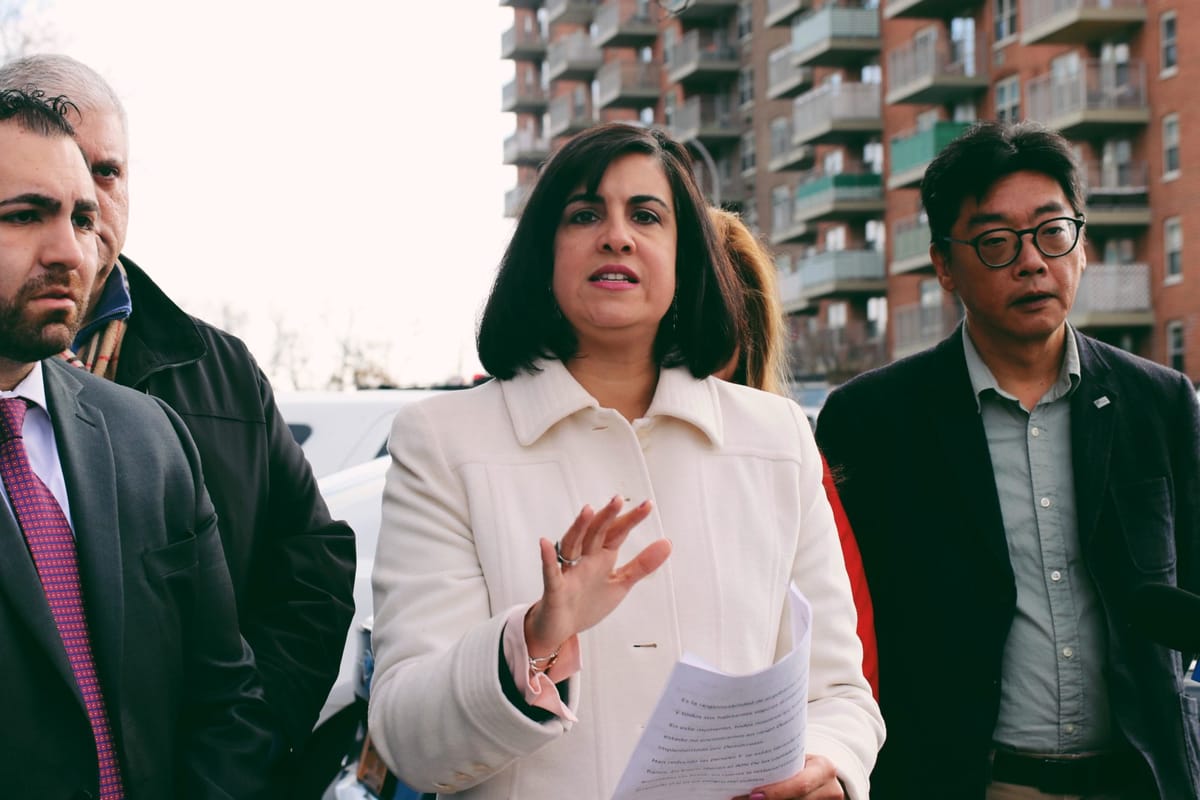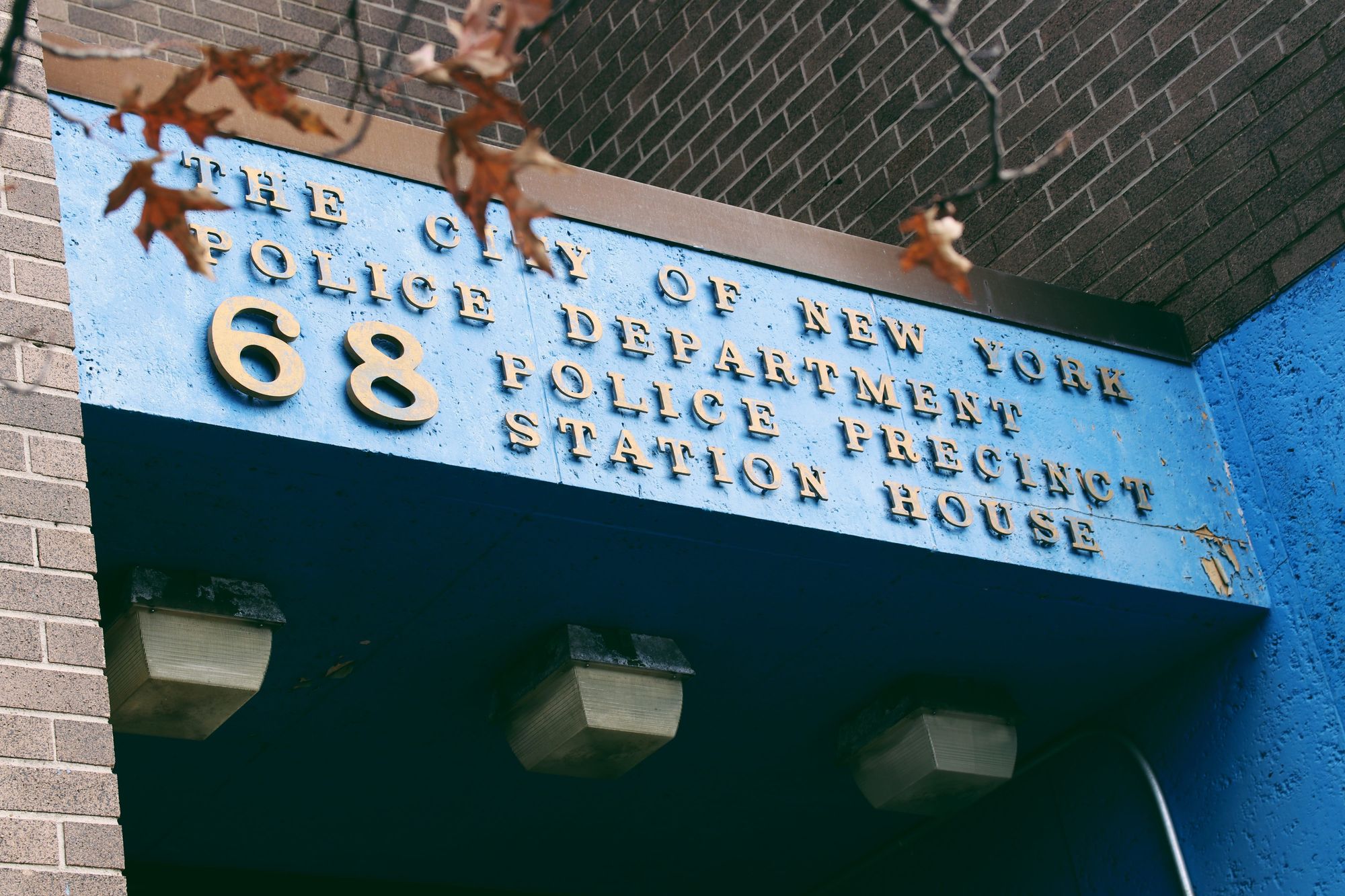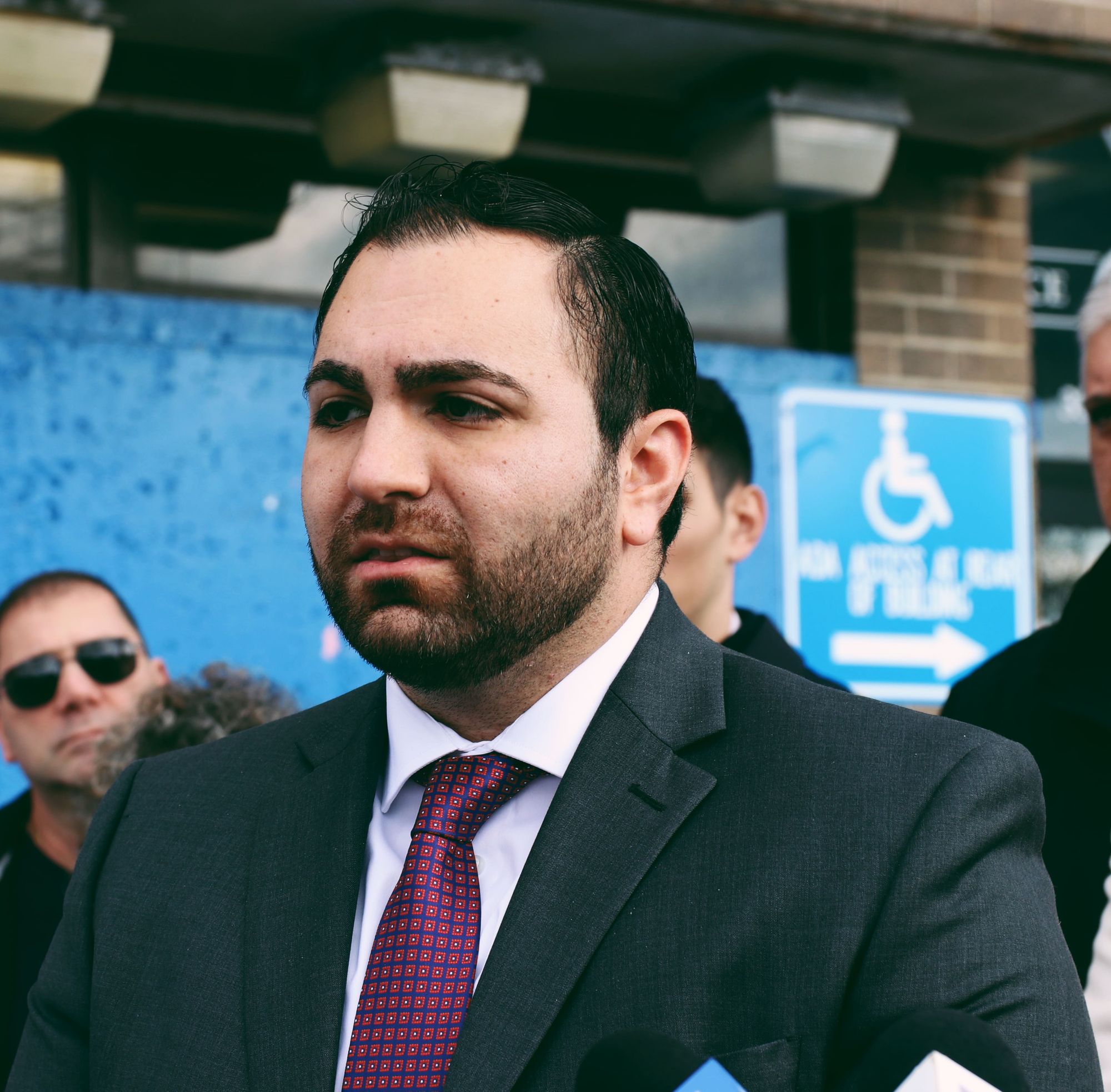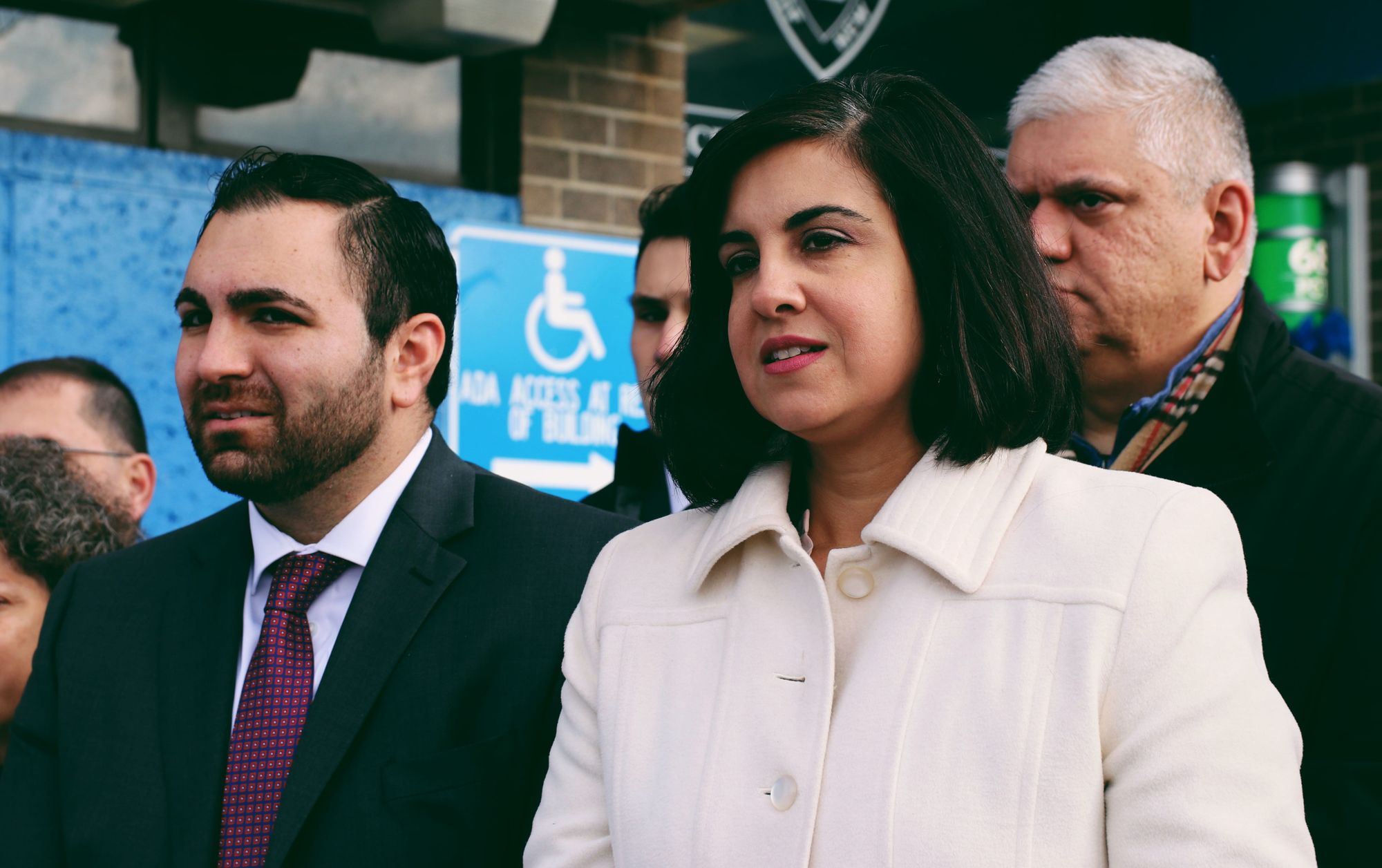Uptick in Bay Ridge Crimes Is Blamed on New Bail Reforms and Anti-Police Rhetoric


BAY RIDGE — Over the weekend, over three dozen residents woke up to their vehicles being vandalized along avenues in the 70s near Shore Road. For some cars, the tires were slashed. For others, they were keyed. Just last month, about 35 cars were also vandalized from 83rd to 93rd Streets along Shore Road.
There’s an uptick in crimes in the neighborhood, many are saying. According to Assemblywoman Nicole Malliotakis, the new bail reform laws (that haven’t been implemented yet) and anti-police rhetoric are to blame for the recent uptick.
“Just in the last couple of months, there have been really disturbing crimes that have been taking place in and around the Bay Ridge and Dyker Heights area,” Malliotakis said. “Multiple criminal incidents including attempted rape, sexual assault, subway groping, burglary, and assault.”
According to NYPD CompStat, compared to 2018, there has been an uptick in some minor crimes in the 68 Pct including burglary, patrol, petit larceny, and auto. The vehicle vandalism was the most recent of the incidents. Council Member Justin Brannan even offered up $5,000 as a reward for anyone with information about it.
“We cannot and will not allow vandals to continue to damage our neighborhood with impunity,” Brannan said in a statement, though not agreeing with Malliotakis for the reasons for the uptick. “We have demanded more resources from City Hall, NYPD Patrol Borough Brooklyn South, and have asked that the 68 Precinct immediately increase patrolling during the overnight hours in Bay Ridge and Dyker Heights.”
According to Malliotakis, this is all a continuation of a disturbing trend that she believes “is directly associated with the environment that has been created by bad policies and rhetoric that have led the bad guys, the criminals, believe that they can get away with this type of behavior.”
Cue the new bail reform laws.
The NY Times explains it as follows: “Beginning next year, people charged with misdemeanors and nonviolent felonies will in most cases be released without cash bail, pending their trials. In another reform, prosecutors will be required to disclose evidence to the defense within 15 days of an indictment instead of shortly before trial, a practice that prompted many a guilty plea before court proceedings even got underway.”
Malliotakis believes this puts the rights of criminals ahead of justice for victims. Even though the laws are set to be implemented on January 1, 2020, she claims the effects are already starting to take place.
“We are already seeing many liberal judges in our city releasing people without bail, even people who have extensive criminal histories,” she said. “And what’s really disturbing about the bail law that will take in effect, is that it doesn’t consider someone’s criminal history. They could have a dozen, two dozen, three dozen convictions and could still walk out the door and be released without bail.”
“It doesn’t consider whether an individual is a threat to public safety and it completely takes away the judge’s discretion in the matter,” she continued.

According to a NY Times op-ed, research and experience show that the new bail reforms will not lead to mayhem or endanger the public. In fact, implementing the reforms will shrink the city’s jail population.
“In Philadelphia, which eliminated cash bail for most misdemeanor and felony offenses in 2018, there has been no significant change in the percentage of people who show up for their court dates,” the Times reported. “In New Jersey, which introduced its reforms in 2017, a report from the state’s Administrative Office of the Courts found no increase in crime associated with the reforms. In fact, studies suggest the opposite may be true: that pretrial detention makes people likelier to commit future crimes.”
It all began over Kalief Browder’s backpack, Malliotakis explained. Browder was a Black man who was arrested for allegedly stealing a backpack. He was unable to make bail and was held at Rikers for nearly three years. He was held in solitary confinement for two years as well. Two years after his release, he committed suicide.
“No one should be in jail for months as they await trial. Nobody. That’s constitutional protection afforded to us,” Malliotakis said. “We as New York State need to do a better job in ensuring that individuals get their constitutionally protected rights to a speedy trial. But that does not mean we open up the floodgates and allow repeated criminals, in many cases, out the door to continue to cause havoc and harm to our communities.”
She said there’s no way to ensure that anyone would return back to court, which means putting law enforcement life at risk.
“We’re not talking about a stolen backpack,” she said. “We’re talking about serious crimes, criminally negligent homicide, assault, dealing drugs, stalking, and strangulation.”
At the press conference this afternoon, Michael Tannousis, a former prosecutor and the man running to succeed Malliotakis as she runs for Congress, said this was all a very dangerous precedent and needs to be stopped.
“For the past eight years as a prosecutor, I have seen defendants coming into the criminal justice system every single day. It has become a revolving door. They come in, they go out, they come back,” he said. “There have been situations where the defendants have come before a judge, the judge does not set bail for one reason or another, and then the defendant has come back again in handcuffs with new victims because he committed a new crime.”

He said the new bail reforms now take away the power from the judge for setting bail for certain crimes, which means that “now they’re almost guaranteed to have career criminals coming back with new victims and new charges.”
Malliotakis noted that these crimes will get worse unless Albany repeals the laws.
“It’s going to get worse and we’re going to see NYC really going back to the pre-1990s days, which will be very unfortunate,” she said. “It’s the entire environment that has been created by our mayor, by our governor, by liberal politicians… where people are feeling they can get away with this type of behavior.”
“It’s the whole environment starting with the mayor wanting to decriminalize multiple crimes. It’s the rhetoric that we’re hearing from him and others that make our police feel they don’t have support. It’s tying the hands of our law enforcement, not allowing them to do their jobs as they see necessary to keep the community safe. It’s reducing the sentencing for misdemeanors to protect individuals.”
In the short run, District Leader Liam McCabe called on more police presence on the streets and subway to address the uptick in these crimes. In a statement, he also criticized the bail reforms.

“We are living in dangerous times as the NYS legislature has recently passed a Pandora’s box of legal loopholes that would make any criminal blush. Loopholes that even the progressive New York Attorney General has warned will handicap prosecutors across the state,” he said. “That coupled with Bill de Blasio and the City Council’s successful push to close Rikers Island and put thousands of criminals back on the streets of NYC is a recipe for disaster.”
“We are calling on the Senator to back away from the anti-police rhetoric in this City and commit to securing our community by reinstating common-sense laws that protect law-abiding citizens and push to INCREASE police presence in NYC.“
Malliotakis agrees. In fact, she had called for more police presence in the subway system back in April.
“I think that we do need to have more police presence in our subway system, particularly at night where many people believe the subways may be desolate in some areas,” Malliotakis said. “They feel concerned for their safety. I think that’s appropriate.”
“I also think that we should understand that you can add more police presence but its the environment that’s been created that’s fostering criminal activity, that is the issue here.”
UPDATE clarification was added that Justin Brannan did not agree with Malliotakis’ statement.



